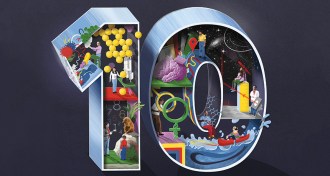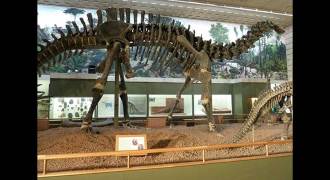
Elizabeth Quill
Executive Editor, 2015-2024
Elizabeth Quill is former executive editor of Science News. During two periods at the magazine, from 2008 to 2013 and again from 2015 to 2024, she edited stories and special projects on topics ranging from public health to AI, from climate change to quantum physics. She managed the SN 10: Scientists to Watch list and the Century of Science project and served as editorial coordinator for the Science News Learning program. Originally from the Finger Lakes region of New York, Elizabeth studied journalism at Ithaca College and received her master’s degree in science writing from MIT.

Trustworthy journalism comes at a price.
Scientists and journalists share a core belief in questioning, observing and verifying to reach the truth. Science News reports on crucial research and discovery across science disciplines. We need your financial support to make it happen – every contribution makes a difference.
All Stories by Elizabeth Quill
-
 Astronomy
AstronomySupernova story continues, just like science journalism
Acting Editor in Chief Elizabeth Quill discusses science's enduring legacy and that of Science News.
-
 Science & Society
Science & SocietyWhat’s ahead for science in 2017?
Science News writers reveal what they are watching for — and hoping for — in the year ahead.
-
 Science & Society
Science & SocietyThe SN 10: Meet the scientists making the next big discoveries
Science News spotlights 10 rising scientists who will transform their research fields over the coming decades.
-
 Neuroscience
NeuroscienceJessica Cantlon seeks the origins of numerical thinking
Cognitive neuroscientist Jessica Cantlon wants to find out how humans understand numbers and where that understanding comes from.
-
 Science & Society
Science & SocietySea life stars in museum’s glass menagerie
See Leopold and Rudolf Blaschkas’ delicate glass jellyfish, anemones, sea worms and other marine invertebrates at the Corning Museum of Glass.
-
 Science & Society
Science & Society‘House of Lost Worlds’ opens vaults of renowned natural history museum
'House of Lost Worlds' pays homage to Yale’s Peabody Museum of Natural History and to the colorful scientists who made the museum great.
-
 Tech
TechWhen Networks Network
Once studied solo, systems display surprising behavior when they interact.
-
 Physics
PhysicsHighlights from the American Physical Society April Meeting, Atlanta
String theory’s take on the Higgs, newborn pulsars may have iron by-products, and coupled neutrons in beryllium nuclei revealed.
-
 Astronomy
AstronomyNew data support Einstein on accelerating universe
New measurements of distant galaxies support Einstein’s cosmological constant as the explanation for the universe’s accelerating expansion.
-
 Anthropology
AnthropologyMeasure Your Giant Carefully And His Size Will Shrink
Ongoing controversy over a hobbitlike hominid.
-

-

Don’t forget beauty
An ornithologist argues that arbitrary preferences may have a place in the bird world.